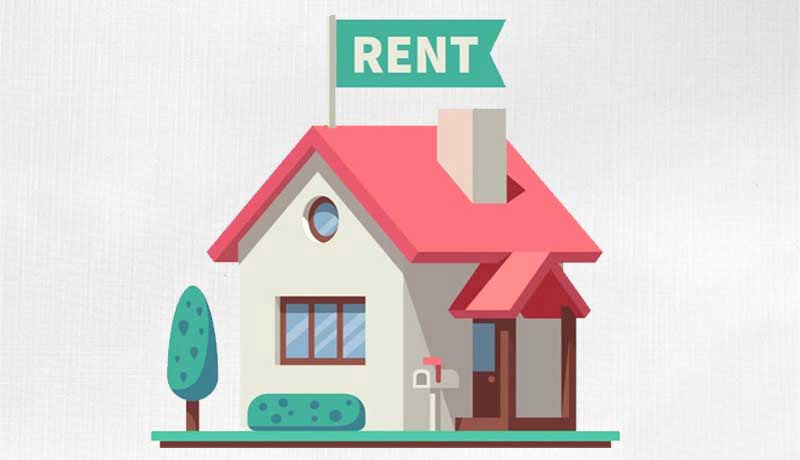Can the Rent Paid to Parents or Spouses be Eligible for HRA Exemption under the Income Tax Act?

Whether Paying Rent to Parents or Spouses to be considered a Tax Evasion Method? Can the Rent paid to Parents or Spouses be Eligible for HRA Exemption under the Income Tax Act? Is the above said to be considered as a method of Tax Planning? These three are crucial question in people’s mind finding a way out to reduce Income Tax Liability.
In a recent Order of Mumbai bench of the ITAT has ruled that, legitimate tax planning to minimise the Income Tax liability is not illegal.
According to Section 10 (13A) of the Income Tax Act, the rented premises shall not be owned by the person claiming the tax exemption, yet can the rent paid to the spouse or relatives be eligible for a Housing Rent Allowances (HRA) exception? If the premises are not under the name of the person claiming the tax exemption, shouldn’t one be allowed to claim an HRA exemption in this situation? If the rent is paid to the spouse where the premises is under the spouse’s name; does that make the tax claimant ineligible for it as according to the law spouses are considered to stay together and typically do not have a commercial relationship?
How is the newest landmark case law from the Income Tax Appellate Tribunal (ITAT), creating a new loophole for tax exceptions relating to HRA?
Section 10 (13A) of the Income Tax Act 1961 states the exception for a salaried individual with ‘residential accommodation occupied by the assessee’ deals with the Housing rent allowance.
A person above the age of 18 is considered to be not dependent on their parent and as a separate taxpayer in the eyes of law. Considering the abovementioned, any rent paid by a salaried individual to their parents will be considered for an HRA exemption if there is a proper rent agreement between the parent and the offspring, the rent is filed as an income by the parents and is taxable under Income from housing property, the rent is paid as a cheque or a bank transfer with a proper receipt of payment, the housing property is under the name of any one of the parents or both and not co-owned by the claimed. This deduction cannot be claimed if the housing premises is rented.
The same can be allowed for other relatives, even siblings. This is completely legal and no penalty or scrutiny may be imposed.
The basic elements of a commercial arrangement are missing when rent is paid to the spouse and such attempts are looked upon as an attempt to evade tax. A married couple is considered to stay together and any payment from one to another on account of using the shared space cannot be considered as rent. Usually, any housing income is clubbed to both the couple and an exemption cannot be claimed for the clubbed income paid by the other. Such agreement between the spouses is considered a sham and not in the spirit of the law. This has been upheld by various courts in the past. It is generally good to avoid arrangements set purely with the intent of avoiding tax.
However, the Income Tax Rules 1962 nor the Income Tax Act 1961 prohibit the eligibility of HRA deduction claim on the rent paid to the spouse. Only if the property is owned by the taxpayer does the rule prohibit such exemption. A taxpayer can be entitled to such an exception if there is genuine documentation to prove an honest rent payment transaction such as a legal rent agreement, timely payment of rent with receipts, the spouse’s complete legal ownership over the premises, and the rental income of the spouse included in their tax filing. The spouse should also have an independent source of income other than the rent received. The deduction cannot be claimed if the claimant is a co-applicant of a housing loan for the accommodation along with the spouse. As an ITC is filed by the spouse, a couple should calculate their combined tax liability to gauge whether the arrangement reduces or increases their overall tax liability. This is especially valid where both the spouses fall in the same tax bracket.
The issue of Rent paid to Parents or Spouses be Eligible for HRA Exemption under the Income Tax Act has been discussed the in two recent case laws.
In a Recent Order in Abhay Kumar Mittal vs DCIT, Circle-72(1), New Delhi, the Delhi bench of the Income Tax Appellate Tribunal ( ITAT ) has held that IT Act does not prohibit claiming HRA exemption on the rent paid to one's spouse. The ITAT also said that, There is no bar on the part of the assessee to extend the loan from his known sources of income to his wife. Similarly, there is no bar on the assessee's wife to repay the loan from her own mutual funds and fixed deposits. The assessee has paid house rent and the recipient, the assessee's wife has declared the same under the head “income from house property” in her returns which has been accepted by the revenue.
In another case of ITAT in Bajrang Prasad Ramdharani v. Asst. CIT Ahmedabad, the Ahmedabad bench of the ITAT has observed that, the wife’s ownership of the house and the duly paid rent receipts acted as proof of sincerity and the Income Tax Exemption was allowed.
Support our journalism by subscribing to Taxscan AdFree. Follow us on Telegram for quick updates.


